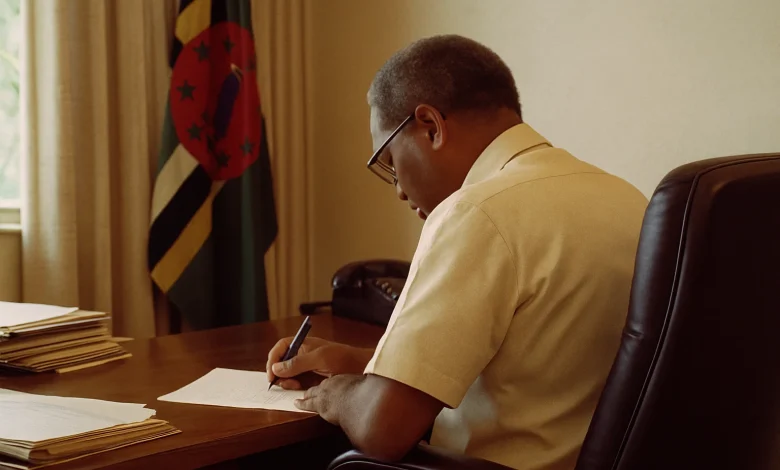Eustace Hazelwood Francis

Eustace Hazelwood Francis was a Dominican politician, attorney, and parliamentary leader who served in several key positions during the 1970s, a period that defined Dominica’s modern political identity. A senior member of the Dominica Labour Party (DLP), he was one of the figures referred to as part of Prime Minister Patrick John’s “Dynamic 21”, the group of legislators who guided the nation toward independence.
Early Life and Education of Eustace Hazelwood Francis
Eustace Hazelwood Francis was born in Grand Bay, Dominica, where he received his early education at the Grand Bay Government School before pursuing secondary studies in Roseau. Known for his discipline and intellect, Francis became a teacher and youth organiser, roles that brought him into contact with the Dominica Labour Party’s early leadership.
Determined to advance his education, Francis later studied law and qualified as a barrister-at-law. His legal training equipped him with the knowledge and confidence that would later define his parliamentary style and government service.
Parliamentary Leadership and Speakership
Francis’s rise to national prominence began when he was appointed Speaker of the House of Assembly in October 1970, a position he held with distinction until March 1977. During his tenure, he was known for his fairness, composure, and command of parliamentary procedure, which helped maintain order during debates that often reflected the heated political climate of the time.
As Speaker, Francis presided over critical sessions that shaped Dominica’s post-colonial governance, including the constitutional developments that preceded full independence. His leadership style was marked by strict adherence to parliamentary protocol and a measured tone that earned him the respect of both government and opposition members.
1975 Election and Ministerial Service
In the March 1975 General Election, Eustace Hazelwood Francis contested the Roseau South Constituency on the Dominica Labour Party platform, defeating Ronald Armour of the opposition Dominica Freedom Party (DFP). His victory cemented his reputation as one of the DLP’s leading strategists.
Following the election, Francis was appointed Attorney General of Dominica, bringing his legal expertise into government service. In that capacity, he played a role in drafting and interpreting legislation during the years leading up to independence in 1978. He was particularly involved in discussions on constitutional reform, trade union rights, and the modernisation of the justice system.
Role in the “Dynamic 21”
Eustace Hazelwood Francis was among the inner circle of Labour parliamentarians referred to as the “Dynamic 21”, a title given to the 21 DLP members who held the majority following the 1975 election. This group became instrumental in shaping government policy during the Patrick John administration, advancing programs in housing, labour relations, and social development.
Though supportive of the government’s modernisation efforts, Francis was also regarded as one of its more principled voices, urging transparency and respect for the rule of law within the Cabinet and Parliament.
Later Years and Legacy
After his service as Attorney General, Francis gradually withdrew from active politics and returned to private legal practice. His tenure as Speaker of the House of Assembly (1970–1977) ranks among the longest continuous periods in that role in Dominica’s parliamentary history.
Eustace Hazelwood Francis is remembered as a statesman of quiet authority, a lawyer, educator, and public servant who bridged the transition from colonial governance to constitutional independence. His contributions to Dominica’s political and legal evolution, particularly through his dual service as Speaker and Attorney General, place him among the key architects of the country’s democratic foundation.




